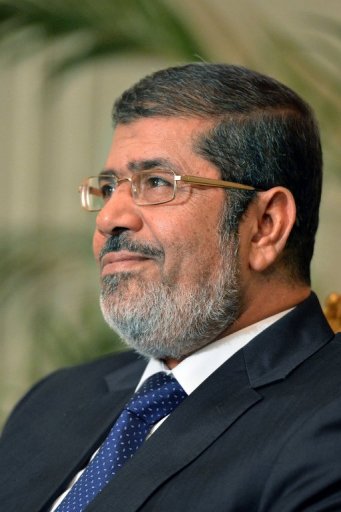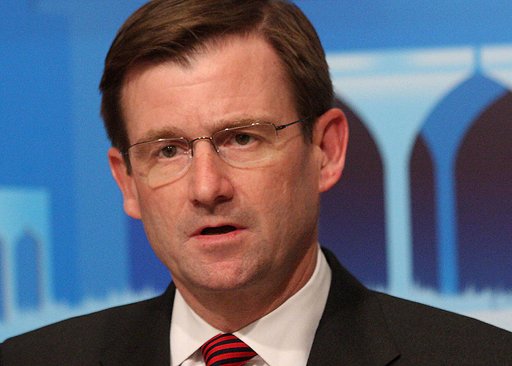Throughout the past months, the Egyptian government has banned a number of activists and public figures for international travel for an assortment of reasons, some of which have remained unknown. Gamal Eid, the director of the Arab Network for Human Rights Information (ANHRI), has found himself the target of state repression when he discovered the government placed him on a no-fly list in February.
Just one month later, the activist discovered that he had been accused of receiving illegal international funds in a case that had begun in 2011 and was recently reopened. A court will rule on Wednesday whether to accept a lawsuit petitioning for Eid’s assets to be frozen.
Ahead of the ruling, Daily News Egypt interviewed the lawyer to discuss the legal standing of his organisation, issues related to the obstacles facing civil society workers, and the effects of state intervention on their work.
What do you think of the conditions for local non-governmental organisations (NGOs) before and after the 25 January Revolution?
Civil society hosts a wide variety of NGOs, including those that operate in Upper Egypt and those that work in development and charity.
The revolution activated and strengthened the human rights movement in the country, making the space wider to include all human rights groups, activists, and organisations.
In the aftermath of the 25 January Revolution, human rights organisations succeeded in proving themselves to be an essential part of civil society. Prior to the revolution, we were not able to speak about human rights. After, we were allowed to promote a strong human rights movement.
NGOs and organisations introduced to society after the revolution included various fields and campaigns, such as the “No to Military Trials for Civilians” and the “Freedom for the Brave” campaigns. We were part of the revolution, which defined our role in society and encouraged others to volunteer with us, especially the youth.
In any other country, NGOs act as a third party between the state and its citizens. In a dictatorship, however, where a country does not respect a citizen’s rights, NGOs must choose either the state or the citizen. We are definitely with the citizens and their rights to freedom and democracy.
Despite the opening up of space that came after 25 January, our working conditions were better before the revolution. Now, things are more difficult due to government restrictions and ignorance on the part of the ministries.
Several media campaigns were initiated to turn against NGOs. Do you think this helped or negatively affected NGOs working in Egypt?
Following 3 July 2013 [the ouster of Mohamed Morsi], the majority of professional media figures were taken off TV and prevented from working in the media. They were replaced by media figures who praise the state and downplay the role of NGOs and distort the purpose of human rights organisations’ work. On the other hand, social media platforms allow us to connect with people who support our work.
The reopening of the 2011 NGOs’ foreign funding case was an ambiguous decision to many, while some considered it a direct escalation in the crackdown on civil society. What do you think?
The current regime is following in the footsteps of former president Hosni Mubarak’s regime, which relied on fabricating cases to fight the opposition. Cases never close. They remain open in case they need to target us again.
Searching for a new scenario was the only option left for the state to target and distort our mission, amid deteriorating freedoms and economic conditions, the failure of the regime, and the regime’s poor reputation abroad.
The state is acting as though human rights groups are the reason behind their failures, and it wants us to face the consequences of their failure. I am certain that the case’s reopening is an order from the remnants of the Mubarak regime. For example, [national security advisor to President Abdel Fattah Al-Sisi] Fayza Aboul Naga was one of the main supporters behind the reopening of the case.
What are the charges levied against you and your organisation in the case?
According to the prosecution, we are accused of receiving $50,000 in international funding to spread ideas of democracy and human rights on the internet. At the same time, it is believed that the Mohamed Alaa Mubarak Association [the organisation of Alaa Mubarak, the son of Hosni Mubarak] has received EGP 86m from government sources.
The prosecution also included accusations that Salafi-run organisations have received EGP 286m, which represents the largest grant ever received in Egypt’s history. Meanwhile, some ‘complicit’ organisations have received EGP 10m from government sources to support and empower lawyers to stand against the Muslim Brotherhood in courts, which is against NGO regulations.
We admit that part of our work is to achieve democracy and support human rights, but in ways that respect the law, especially given that what is happening in the country currently is not acceptable.
What is the Arabic Network for Human Rights Information’s (ANHRI) legal status in the case? How do you think the case will proceed?
Legally, the case is weak. But if the prosecution or the court addresses the case from a political perspective, drastic action will be taken against us. This is especially true given that the security apparatus and the state want to eliminate the opposition.
I do not believe the case is really about receiving illegal funds, but is rather intended as a way to target me. If I really needed funding I would have instead used my [2011 Roland Berger Human Dignity Award] prize money to serve my work rather than build several libraries. The prize money I received was enough to advance my work and keep me stable throughout my life.
According to the accusation directed against me, it is claimed that I received illegal funds in my bank account.
As for our legal status, in 2014 we sent a telegraph to the ministry noting that we are a law firm working to help people who cannot afford legal services. According to the law governing law firms, this is our right, but the ministry refused to receive it for political reasons.
When the case was opened in 2011, 109 organisations were involved. Do you have information about organisations currently involved and others that are excluded?
The current crackdown targets 12 organisations, mostly comprised of NGOs working in advocacy, women’s rights, and development.
Obviously, pro-government organisations have been excluded from the case, since they are not threatening the state’s image. The ministry is cooperative with such organisations, and they help facilitate their registration procedures and provide them with funding as well.
The ministry frequently releases reports that list which NGOs have received funding. I demand that the ministry announce the names of the organisations and the reason behind the funding for the sake of transparency.
Concerning the NGO draft law, what do you expect will happen? Since you possess and have read a copy of the draft law, what is your opinion of it?
The government’s statements that there is an ongoing discussion about the new law are all lies and media propaganda. The law has already been written and the National Security Apparatus was directly involved in its creation. It is still possible that the law may be amended before it is announced.
This law gives the ministry and security apparatus complete authority over the work of NGOs. The government can accept or reject funding, supervise NGO activities, and close NGOs, without even a court decision.
We suggested in our draft law that if an organisation could not secure local funding and resorted to foreign funding, then they should be transparent about the source of funding, the amount, and reason behind the funding. Our suggestion for a foreign funding system was formulated by civil society organisations and submitted to the former minister of social solidarity Ahmed Al-Boraie, but the draft law was withdrawn.
Generally speaking, we do not reject censorship or transparency, but we reject the idea of oversight from the National Security Apparatus. Oversight should fall in the hands of the judiciary, a supposedly independent power in Egypt that exists to mediate between the citizen and the state.
Have any civil society representatives been welcomed by the ministry to discuss the new law draft?
No, because the ministry would have rejected any of our proposed amendments, as they would prohibit them from enforcing restrictions on us. However, they certainly hosted pro-government NGO members.
Following the 25 January Revolution, ministries were open to dialogue with civil society, even the Ministry of Interior. We were able to participate in certain initiatives, including defending and supporting martyrs of the revolution and training police officers. Parliament was open to discussing certain issues with members of civil society, including press freedom.
Even for a certain period after 3 July 2013 we were still being invited to join some political meetings with interim president Adly Mansour. We were also hosted on talk shows two or three times per day. Now, however, 32 members of civil society are blacklisted and not allowed to appear on television.
Explain your organisation’s financial status. Did ANHRI’s continued criticism of the state affect your work as a lawyer in the courts or your organisation’s work?
Yes, in several cases my clients were impacted by my rights work and received unjust sentences, not because they deserve one, but because I was the lawyer.
Regarding our financial situation, some of us are not receiving monthly salaries and others are volunteering. Generally, most of us do not financially benefit from the work we do.
Are there any businesspeople funding civil society organisations? Have they halted their funding following the reopening of the NGOs’ foreign funding case?
Yes, some businessmen are funding NGOs, but they stopped cooperating with us in order to avoid problems with the National Security Apparatus.


